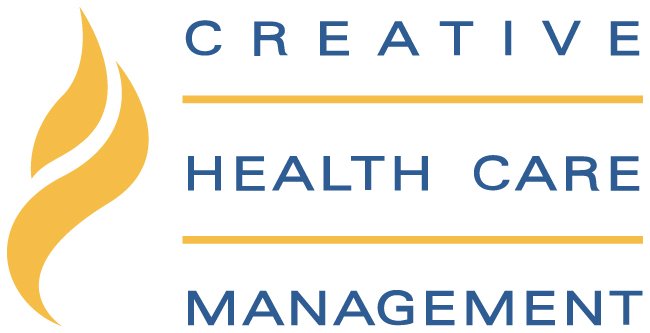The Nursing Profession
The nursing profession has been around since the beginning of time. Nurses make up a large number of hospital staff in public health facilities, long term care facilities, outpatient care centers, and they manage most healthcare services within many community health settings.
Registered Nurse
A nursing career requires formal education to become a registered nurse. A bachelor’s degree is the beginning. Nurses work in hospitals practicing general nursing practices or study to have specialties such as nurse anesthetists, mental health, preventive care, or labor and delivery. A registered nurse is responsible for direct patient care, and this includes providing medical treatment, advising on diet, helping with personal hygiene and many other things.
In order to become a registered nurse (RN) you need to have graduated from an accredited nursing program and then obtain a nursing license. RN’s need to have strong interpersonal skills as well as good communication skills. In addition you need to be able to work well under pressure.
Facts About Nursing
Interesting facts about nursing – of the 4.2 million nurses worldwide, about 20% are licensed practical nurses (LPN’s) and 80% are a licensed registered nurse (RNs). Additionally, there are over 325,000 nurse practitioners licensed in the U.S. According to the American Association of Colleges of Nursing.
According to U.S. News and World Reports, in the list of top 40 jobs of 2021, three included positions in nursing. Registered nurses were ranked #37, nurse anesthetists were ranked #39 and nurse practitioners were ranked at #3.
Nurses are the backbone of health care services. They work tirelessly to provide care for patients in hospitals and other healthcare settings.
Did You Know These Interesting Nurse Facts?
- There are 4.2 million registered nurses and 950,000 LVN’s in the United States.
- Registered nurses make up about 2% of the total workforce in the United States.
- There are 4x as many nurses in the United States than physicians.
- Nurses walk—a lot! A study found that nurses walk an average of 4-5 miles during a 12-hour shift. Most Americans walk just 2.5-3 miles during the course of an 18-hour day!
Nursing Hours
Some registered nurses work only on the weekends or two long days throughout the week, while other nurses will work a traditional five-day workweek. Registered nurses will also sometimes work on rotating schedules, especially in high-traffic hospital environments.
Nursing School
Nursing school is a place for people who want to become nurses. There are many different types of nursing schools, and some nursing schools are better than others. The United States is home to more than 996 baccalaureate nursing programs, according to the American Association of Colleges of Nursing (AACN). About 56 percent of the current nursing workforce holds a bachelor’s of science in nursing (BSN) degree.
The most common type of nursing education is the associate degree nursing program. This type of program usually takes two years to complete, and it’s often offered at community colleges or technical schools.
To be accepted into an associate degree nursing program, you usually need to have completed a high school diploma or GED, and you’ll need to do well on the entrance exam.
Some nursing students choose to go into bachelor’s degree programs instead of associate degree programs. These programs take four years to complete and they’re often offered at universities or colleges.
There are also other types of nursing degrees that take more than four years.
The First Nursing School
The first nursing school was founded in 1873 by Florence Nightingale. It was called the Nightingale Training School for Nurses.
Florence Nightingale is one of the most famous nurses in history. She helped make nursing a respectable profession. She also created the first modern hospital, which helped to reduce death rates from infections and disease.
In 1873, she founded the Nightingale Training School for Nurses to provide training for those who wanted to become nurses. The school was given a Royal Charter in 1902 and became known as Queen’s College, part of King’s College London (KCL). In 1995 it became an independent college within KCL and is now known as King’s College London – Queen Mary University of London (KCL QMUL)
Interesting Nursing Facts from 1873
According to a timeline of Nursing Education in 1873-1889: “The Bellevue Hospital School of Nursing is founded in New York City, as the first nursing school in the U.S. to be founded on the principles set forth by Florence Nightingale—it features a one-year program. Soon afterward, the New England Hospital for Women (Connecticut) and Massachusetts General Hospital (Boston) open nurse training programs.” from the American Sentinel College of Nursing & Health Sciences at Post University
What are Registered Nurses?
Registered nurses are health care professionals who provide nursing care to patients.
Registered nurses are educated and trained in the science of nursing, providing them with the knowledge and skills needed to assess, plan, implement and evaluate a patient’s health care needs. They work in hospitals, long-term care facilities and private homes. Registered nurses can be found in many different settings such as schools, clinics, doctors’ offices and other places that provide medical services or assistance.
What is the Role of a Registered Nurse?
Registered nurses typically work under the direction of a doctor or other qualified healthcare professional but they are still required to have a license to practice. They often work closely with other members of the medical team such as physicians, medical assistants and pharmacists.
What are Nurse Midwives?
Nurse midwives are nurses who specialize in obstetrics and gynecology. They provide health care to women from pregnancy to the postpartum period.
A nurse midwife is a nurse who specializes in obstetrics and gynecology. They provide health care to women from pregnancy through the postpartum period. Nurse-midwifery is a primary care specialty that is distinct from nursing, but it is practiced by nurses with an additional graduate degree in midwifery or nurse-midwifery.
What is a Nurse Practitioner?
A nurse practitioner is a registered nurse who has completed advanced education in nursing and holds a master’s degree in nursing.
Nurse practitioners are qualified to provide primary care, diagnose illness, order diagnostic tests, prescribe medications, and manage chronic conditions. They can also work as part of a multidisciplinary team to provide specialty care for patients with complex needs.

Wellness for Nurses
There are many benefits to making it a priority to incorporate some sort of wellness programs that focus on a nurses well being. Wellness programs for nurses will help reduce stress levels, prevent burnout, decrease the chance for chronic diseases, and help by improving sleep.

History of Nursing
The history of nursing is a long and complex one. It has been a profession that has been around for centuries. With the first mention of nursing being in the Bible, it is clear that there was some form of professional nursing before hospitals were even invented.

National Nurses Week 2022
National Nurses Week 2022 begins Friday May 6 and ends Thursday May 12. The dates for national nurse week are always May 6 — 12, because May 12 was Florence Nightingale’s birthday. The first national nurses’ week occurred October 11-16, 1954 to celebrate the 100th anniversary of Florence Nightingale’s mission in the Crimea War.

Activities for Nurses Week
There are many ways to celebrate nurses week that encourage nurses to participate. Some activities for nurses week include hosting a nurses night, a nurse bingo game, nurse Olympics, a community oriented event, a special recognition program, free food during a lunch break, and having a bulletin board with cards to show nurses love.


